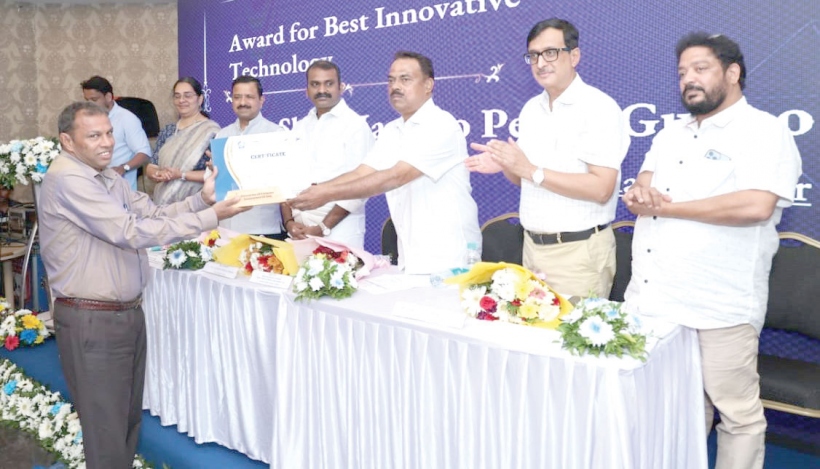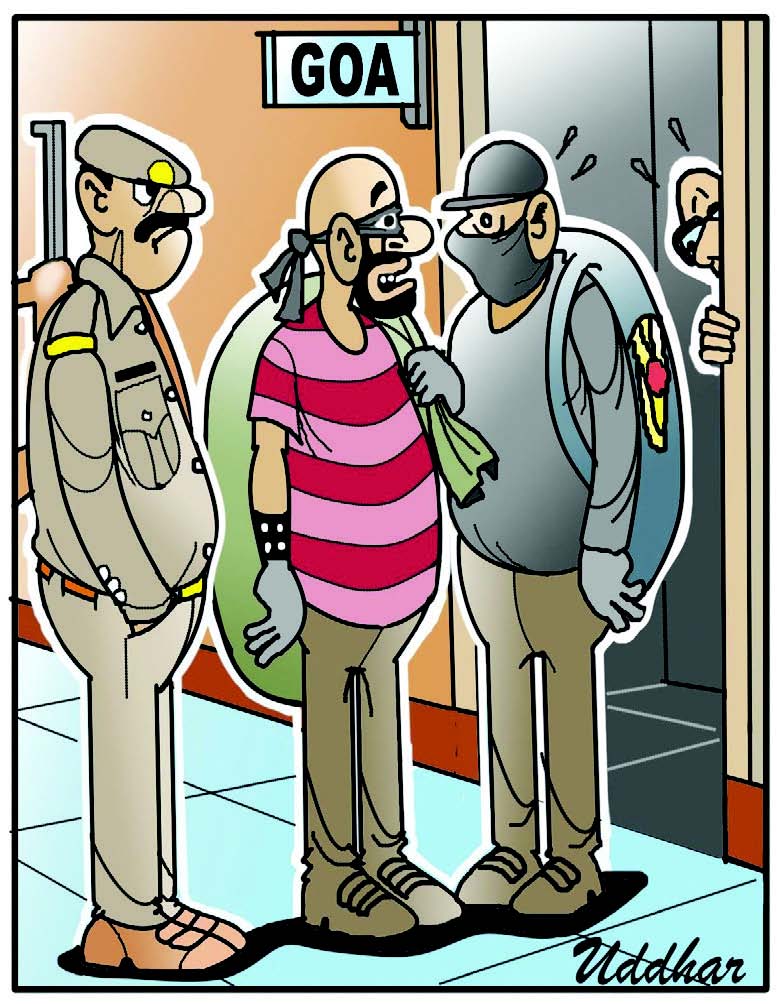
KARSTEN MIRANDA
MARGAO: Remedios Crasto, the veteran fisherman from Assolna, recently won a State award for his contribution to the fishing sector. However, he is in no mood for celebrating or resting on his laurels as he believes there is still so much more to do to help the traditional fishing community.
Sitting on the banks of the River Sal and staring beyond, a despondent Crasto immediately starts listing out all that has caused harm to people he describes as ‘rural fishermen’.
For a person whose life has been about the sea, river, and fishing, it is no wonder that his heart beats for these issues. It is no surprise either that he bagged the state award for his most prized possession – the oldest fishing stake in Goa.
“A stake is a system comprising poles erected in the river. Between each of these a net is cast for catching shrimps during the low tide. We remove the catch before the high tide comes in,” he explains. “These fishing stakes were placed here by our forefathers and have existed since the Portuguese era. While I was working abroad, I heard that the government had removed these stakes. I was very upset and returned to Goa to spend the next couple of years working towards putting them back in place.”
Crasto’s efforts paid off. Soon enough, the government allowed the setting up of 17 fishing stakes at various places along the River Sal for which the fishermen paid Rs 1.9 lakh to the state.
Crasto has also appealed to the government departments concerned for assistance to the traditional fishing community, such as permission for small motors, and subsidies.
“The government must help the traditional fishermen. It appears that only the wealthy trawler owners get a hassle-free experience while we are made to run from pillar to post for small applications. There should be action against trawlers for entering in the part of the river or sea that is reserved for traditional fishermen. If the government can’t do this, it should simply remove the word ‘traditional’,” Crasto rues.
He has also demanded that fishermen from each village ask their respective panchayats to declare their areas as fishing villages and identify fishing activity in order to help protect their rights in the future.
Financial difficulties had prompted a seven-year-old Crasto to accompany his mother to the river to catch shellfish. He would then go to school. This routine provided him with knowledge of the river at a young age, such as the best time to try and catch fish, how temperature helps, and what can be done during low or high tides.
He also realised what it meant to work hard as he saw his mother walk with a basket of fish on her head all the way to Cuncolim from Assolna to sell the catch and help the family survive.
Crasto carried this occupation forward until his late 20s, before joining an international cruise liner.
When he returned to the fishing sector in Goa, he was disappointed to find that the same spots in the river he’d frequented as a child did not have shellfish anymore. His concerns were substantiated when the National Institute of Oceanography did a study on how shellfish are facing extinction due to pollution.
“There was a boy from Carmona village named Samuel who was studying in a college in Pune. With him, we travelled from Betul to Khareband and he tested the water. We want to present these findings to the government to illustrate the high pollution levels in the river,” he says.
Picking out sewage discharge as one of the polluting factors, Crasto also laments that chemical effluents and waste water dumped into the sea by artificial prawn farms and trawlers at the Cutbona jetty are killing natural marine life. He is already anxious about watersports activities being given a free hand in the river and feels this could add to the pollution, apart from destroying traditional fishing tools.
On a more positive note, Crasto says the Covid-19 pandemic showed Goa how traditional fishing is not only timeless but is also a way of life.
“When the pandemic struck, so many people, especially those who work abroad, were without jobs. So, they switched to fishing and saw how they managed to support their families. Fishing has been passed on down to us from our ancestors and I hope the future generations will take it forward,” Crasto says.
